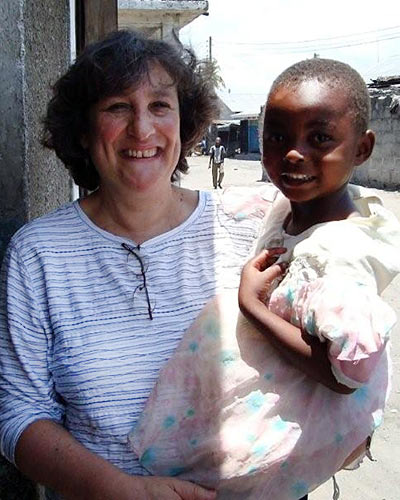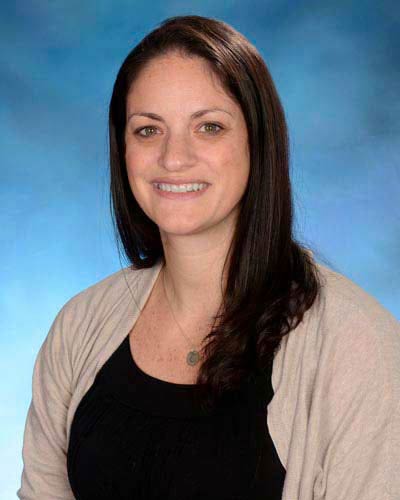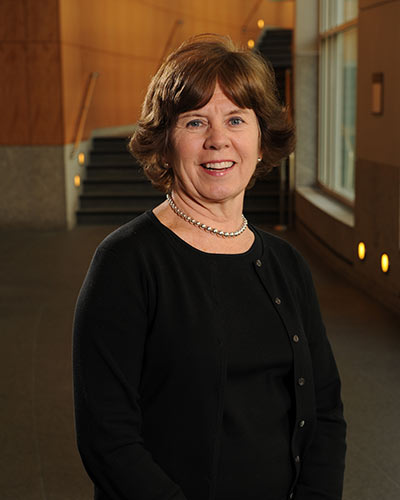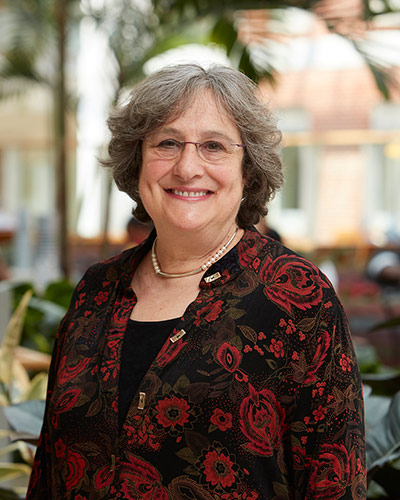September 11, 2017 | Joanne Morrison

University of Maryland School of Medicine Researchers Explore How to Prevent Diarrheal Diseases, a Leading Cause of Death in Young Children in Sub-Saharan Africa and South Asia
Each year, more than half a million deaths among children under five years of age around the world are caused by diarrheal diseases – largely due to insufficient access to adequate hygiene, sanitation and clean drinking water. While there are effective preventive measures available, including vaccines, adoption is lagging in low-resource settings where the most severe cases occur.
Research conducted at the University of Maryland School of Medicine (UM SOM), has identified four pathogens are responsible for the vast majority of diarrheal illnesses – leading the way for potential new treatments.
In a recent paper published in Pediatric Clinics of North America, “The Burden and Etiology of Diarrheal Illness in Developing Countries,” Karen Kotloff, MD, Professor of Pediatrics and Head of the Division of Infectious Disease and Tropical Pediatrics at UM SOM, outlined the impact and challenges of diarrheal diseases, identified the key pathogens responsible and discussed the interventions to prevent and treat this serious issue. The research was conducted in areas where there is a high burden of diarrheal illness. This included The Gambia, Kenya, Mali, Mozambique, Bangladesh, India and Pakistan.
In 2015, diarrheal diseases caused an estimated 2.3 billion illnesses and 1.3 million deaths worldwide. Among that total, 40 percent were children under five years old and 90 percent of the deaths occurred in sub-Saharan Africa and South Asia, the research showed.
These pathogens – rotavirus, Cryptosporidium, Shigellaand enterotoxigenic Esherichia coli (ETEC) – are responsible for most diarrheal illnesses, according to Dr. Kotloff, drawing from research conducted under the Global Enteric Multicenter Study (GEMS, the largest study of childhood diarrheal diseases conducted in a developing country setting. UM SOM coordinated the GEMS study, which was funded by the Bill & Melinda Gates Foundation.
“The findings from the GEMS study show that despite the many causes of diarrhea, targeting just four pathogens could prevent the majority of serious cases,” said Dr. Kotloff, who is also Associate Director of Clinical Studies at UM SOM’s Center for Vaccine Research.
During the first year of a child’s life, researchers found that rotavirus was the leading pathogen among the top four identified every research site. Among infants, rotavirus incidence was more than two times higher than any other pathogen.
Dr. Kotloff led the clinical and epidemiological activities in the GEMS study and UM SOM’s Principal Investigator was Myron M. Levine, MD, DTPH, the Simon and Bessie Grollman Distinguished Professor of Medicine and Associate Dean for Global Health, Vaccinology and Infectious Disease. Dr. Kotloff’s latest findings also draw on a Gates Foundation-funded study underway, Vaccine Impact on Diarrhea in Africa (VIDA), which she is leading at sites in The Gambia, Kenya and Mali, to assess the causes and burden of diarrhea in children under five following the introduction of rotavirus vaccine.
Dr. Kotloff said that the five key strategies to prevent diarrheal diseases and related complications are vaccination, oral rehydration salts, administering zinc, maintaining good nutrition, and the practice of proper hygiene, particularly handwashing.
At present, there are rotavirus vaccines available internationally that are derived from live, but mild, strains, and WHO has recommended that the rotavirus vaccine for infants be included in all national immunization programs, particularly in countries where diarrheal deaths account for more than 10 percent of mortality among children under five.
“We are on the cusp of a dramatic shift in the epidemiology of pediatric diarrheal diseases since rotavirus vaccines became available,” Dr. Kotloff said. “However, adoption of a rotavirus vaccine regime is lagging in low-resource settings where the most severe cases occur.”
Research shows some vaccines have not been as effective in the world’s poorest countries. To better understand this, investigators at UM SOM’s CVD are studying the impact of vaccine introduction on the cause and incidence and cause of diarrhea in sub-Saharan Africa. Dr. Kotloff and her team are studying the effectiveness and safety of a new enhanced thermostable formulation of a rotavirus vaccine called RotaTeqTM in Mali, which is intended to be more resistant to temperature fluctuations.
A diarrheal illness typically lasts several days and can leave the body dehydrated, without the water and salts necessary for survival. Extreme cases can lead to shock and death within hours. Infection from bacterial diarrheal episodes caused by pathogens such as Shigella can cause extensive damage of the intestine as a result of intense inflammation and cell death. Importantly, Dr. Kotloff noted that in addition to high rates of mortality among young children suffering from diarrheal diseases, a single episode of moderate-to-severe diarrhea can produce lasting serious health conditions, such as impaired growth and cognitive development.“The GEMS study showed that children who had a serious diarrheal disease episode were 8.5 times more likely to die in the two months after their illness than children in their neighborhood who were the same age but did not have an episode. This highlights the importance of preventing these episodes from occurring in the first place, and paying close attention to those who do have an episode,” said Dr. Kotloff.
“Dr. Kottloff’s work truly demonstrates the global reach of our research at the University of Maryland School of Medicine. For nearly two centuries the school of medicine has been at the forefront of treating diseases among the most underserved areas,” said E. Albert Reece, MD, PhD, MBA, Vice President for Medical Affairs at the University of Maryland and the John Z. and Akiko K. Bowers Distinguished Professor and Dean of the University of Maryland School of Medicine.
About the University of Maryland School of Medicine
Commemorating its 210th Anniversary, the University of Maryland School of Medicine was chartered in 1807 as the first public medical school in the United States. It continues today as one of the fastest growing, top-tier biomedical research enterprises in the world -- with 43 academic departments, centers, institutes, and programs; and a faculty of more than 3,000 physicians, scientists, and allied health professionals, including members of the National Academy of Sciences, and a distinguished recipient of the Albert E. Lasker Award in Medical Research. With an operating budget of more than $1 billion, the School of Medicine works closely in partnership with the University of Maryland Medical Center and Medical System to provide research-intensive, academic and clinically-based care for more than 1.2 million patients each year. The School has over 2,500 students, residents, and fellows, and nearly $450 million in extramural funding, with more than half of its academic departments ranked in the top 20 among all public medical schools in the nation in research funding. As one of the seven professional schools that make up the University of Maryland, Baltimore campus, the School of Medicine has a total workforce of nearly 7,000 individuals. The combined School and Medical System (“University of Maryland Medicine”) has a total budget of $5 billion and an economic impact of nearly $15 billion on the state and local community. The School of Medicine faculty, which ranks as the 8th-highest public medical school in research productivity, is an innovator in translational medicine with 600 active patents and 24 start-up companies. The School works locally, nationally, and globally, with research and treatment facilities in 36 countries around the world. Visit medschool.umaryland.edu/
About the Center for Vaccine Development
Since its inception in 1974, the CVD has worked to eliminate vaccine-preventable diseases. The CVD has created and tested vaccines against cholera, typhoid fever, paratyphoid fever, non-typhoidal salmonella disease, shigellosis (bacillary dysentery), Escherichia coli diarrhea, nosocomial pathogens, tularemia, influenza, and other infectious diseases. Learn more about the CVD.
Contact
Department of Anesthesiology
(410) 328-6120 (phone)
(410) 328-5531 (fax)
swalsh@som.umaryland.edu
University of Maryland School of Medicine
Joanne Morrison
Director of Marketing and Public Relations
University of Maryland School of Medicine
jmorrison@som.umaryland.edu
Office:(410) 706-2884
Mobile:(202) 841-3369
Related stories

Tuesday, December 20, 2022
Dr. Thomas K. Chin Appointed New Division Head of Pediatric Cardiology at University of Maryland School of Medicine and Co-Director of Children's Heart Program at UM Children's Hospital
Steven J. Czinn, MD, the Drs. Rouben and Violet Jiji Endowed Professor and Chair of Pediatrics at the University of Maryland School of Medicine, announced today that Thomas K. Chin, MD, has been appointed to serve as the new Division Head of Pediatric Cardiology in UMSOM’s Department of Pediatrics, and as Co-Director of the Children’s Heart Program at the University of Maryland Children’s Hospital (UMCH), effective January 2023.

Monday, November 21, 2022
UM School of Medicine Empowers Faculty Members Through Recently Founded Academy for Career Development
Within a year of the launch of the Medical Education Leadership Academy (MELA) at the University of Maryland School of Medicine (UMSOM), faculty members from across the School’s various divisions are expressing an overwhelmingly positive response to the Academy’s mission of creating an environment that fosters career development of a diverse community of nationally recognized leaders in medical education.

Tuesday, August 30, 2022
$800K Donation Will Fund New Discoveries and Treatments for ALS
The University of Maryland School of Medicine (UMSOM) will receive an $800,000 donation to be used by the University of Maryland Brain and Tissue Bank to advance research into the treatment and cure of Amyotrophic Lateral Sclerosis (ALS), commonly referred to as Lou Gehrig’s Disease.

Thursday, December 16, 2021
Novavax COVID-19 Vaccine Found to be Safe and Effective in Phase 3 Trial Conducted by UM School of Medicine Researchers
An investigational COVID-19 vaccine made by Novavax was found to be 90 percent effective at preventing COVID-19 illness, according to results from a Phase 3 clinical trial published today in the New England Journal of Medicine. The University of Maryland School of Medicine’s (UMSOM) Center for Vaccine Development and Global Health served as one of the trial sites, and Karen Kotloff, MD, Professor of Pediatrics at UMSOM, served as Co-Chair for the trial protocol.

Friday, December 18, 2020
Low-Income Preschoolers Exposed to Nurturing Care Have Higher IQ Scores During Their Teen Years, Landmark Study Finds
Preschoolers living in impoverished communities who have access to a nurturing home environment have significantly higher intelligence quotient (IQ) scores in adolescence compared to those raised without nurturing care. That is the finding of a new international study conducted by University of Maryland School of Medicine (UMSOM) researchers, which examined data from more than 1,600 children who were followed from birth through their teenage years. Results were published this week in The Lancet Child & Adolescent Health journal.

Thursday, January 09, 2020
UM School of Medicine Research Shows Less Severe Cases of Diarrheal Illness can Still Lead to Child Deaths, Even Weeks Following Onset of the Illness
Diarrheal diseases are a leading cause of death for young children, accounting for nine percent of all deaths worldwide in children under five years of age, with most occurring in children under two years of age. Now, researchers at the University of Maryland School of Medicine (UMSOM) found that even milder cases of diarrheal diseases can lead to death in young children.

Monday, June 17, 2019
Primate Study Finds New Evidence that Growth Factor Plays Key Role in Maintaining Healthy Pregnancy
About 1 in 10 pregnant women experience placenta abnormalities that lead to life-threatening preeclampsia (hypertension), preterm labor and fetal growth problems, but finding effective treatments to effectively prevent or reverse these conditions has so far been elusive. A new research finding from University of Maryland School of Medicine (UMSOM) researchers, published in the June issue of the journal Endocrinology, could have important implications for developing novel treatments to prevent placental abnormalities.

Monday, May 06, 2019
UM School of Medicine's Dr. Karen Kotloff Receives 2019 Alumni Achievement Award from Temple University
Karen Kotloff, MD, Professor of Pediatrics at the University of Maryland School of Medicine (UMSOM), has received the 2019 Alumni Achievement Award from the Lewis Katz School of Medicine at Temple University.

Wednesday, December 26, 2018
Multicenter Trial Supports Use of Topical Antibiotic as a Tool to Eliminate Staph Colonization in NICU Babies
A team of doctors led by Karen L. Kotloff, M.D., University of Maryland School of Medicine (UMSOM), Center for Vaccine Development and Global Health (CVD), has performed a clinical trial involving multiple hospitals that tested the effectiveness of applying a topical antibiotic known as mupirocin for prevention of Staphylococcus aureus (SA) infection in babies in the neonatal intensive care unit (NICU). This study was published in the journal Pediatrics.

Monday, October 15, 2018
University of Maryland School of Medicine Scientists Receive Prestigious UMB Founders Week Awards
Several experts at the UMSOM received prestigious awards commemorating the UMB 2018 Founders Week. Among them, Karen Kotloff, MD, Professor of Pediatrics, was named "Researcher of the Year" for her extensive work in infectious diseases in the U.S. and developing countries. The MARS team – Steven I. Hanish, MD, Visiting Associate Professor of Surgery, Thomas M. Scalea, MD, FACS, FCCM, The Honorable Francis X. Kelly Distinguished Professor in Trauma Surgery, and Deborah Stein, MD, MPH, FACS, FCCM, The R Adams Cowley, MD Professor in Shock and Trauma– were named "Entrepreneurs of the Year" for their liver dialysis device called the Molecular Absorbent Recirculating System (MARS).

Wednesday, March 15, 2017
New Director Appointed to Lead the University of Maryland Children's Hospital
University of Maryland Medical Center (UMMC) President and Chief Executive Officer Mohan Suntha, MD, MBA and University of Maryland School of Medicine (UMSOM) Dean E. Albert Reece, MD, PhD, MBA, announced today that Steven J. Czinn, MD, The Drs. Rouben and Violet Jiji Endowed Professor of Pediatrics and Chair of the Department of Pediatrics at the University of Maryland School of Medicine, has been appointed to the role of Director of the University of Maryland Children’s Hospital (UMCH).

Wednesday, June 29, 2016
UM SOM Researchers Awarded Grant to Use Innovative Alternative to Autopsies to Better Understand Child Mortality
Kathleen Neuzil, MD, MPH, director of the Center for Vaccine Development (CVD) at the University of Maryland School of Medicine (UM SOM), and UM SOM Dean E. Albert Reece, MD, PhD, MBA, announced today that CVD has been awarded a large grant from the Bill & Melinda Gates Foundation for research that will help determine why so many children under five are dying in the world’s poorest countries. The grant will fund use of an innovative alternative to traditional autopsy known as minimally invasive tissue sampling. The technique, which involves the collection of tissue samples with fine needles, allows researchers to quickly identify the cause of death, and help illuminate ways to save lives and improve the health of children in these vulnerable areas.
